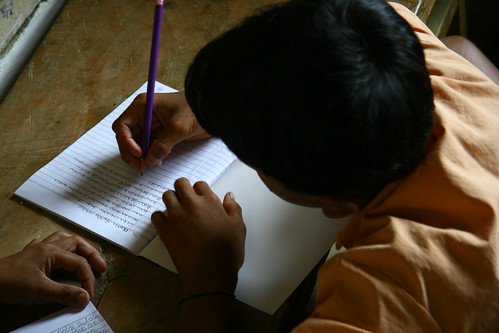Saying Yes or Agreeing
It is almost a given/ must for you to know these expressions. As it is used in almost 90% of your daily conversation. So, it wouldn't hurt to learn right?! Hehe..
Yes – 네 (Ne) or 예 (Ye) **Note that 네/ 예 is also used to denote that you agree or understand what the other party is saying or just applying that you are there.** Eg. When someone calls out your name, usually Koreans will answer 네/ 예 to state their presence.
Yes, I am – 네 그렇습니다 (Ne, kurosumnida)
Correct! or Right! – 맞아요 (Majayo)
It’s true – 정말이야 (Chongmariya)
Okay – 좋아 or 좋아요 (Joh-a or Joh-ayo) It also means good (I am okay with it)
I am okay - 괜찮아요 (Gwaenchanayo)
Certainly or I know/understand – 알겠어요 (Algesseoyo) or 알겠습니다 (Algesseumnida)
I think so – 그렇게 생각해요 (Kureoke saengakhaeyo)
Yes please (do so) – 그렇세요 (Kureoseyo)
Of course or Absolutely yes – 당연하지 (Dangyeonhaji)
Saying No or Disagreeing
Saying no is as important to saying yes too!
No – 아니오 (Anio)
No, I am not – 아니오 틀립니다 (Anio, teurimnida)
Wrong – 틀립니다 (Teurimnida) or 틀려요 (Teuryeoyo)
Never – 절대 아니야 (Cheoldae aniya)
No way! – 말도 안 돼 (Maldo an dwe)
That is not right – 그렇지 않아요 (Kureoji anayo) or 그렇지 않습니다 (Kureoji ansumnida)
I don’t know – 몰라요 (Mollayo)
Of course not – 물론 아니지 (Mullon aniji)
Looks tough to master the language right??! It does seems so when comes to learning languages; it applies for all. But, practice does make perfect! So why wait~~ Aja Aja Hwating! You can do it...hehe
 |
| Practice!Practice!Practice! |
 |
| The most important table to gives you a good kick start! =D |
I can understand most meaning of the words here when its spoken out loud or by reading the romanized words...not the Hangul characters thou~~sad sad....*Coz I'm too lazy to learn??!* Ahakz~~





































0 comments:
Post a Comment